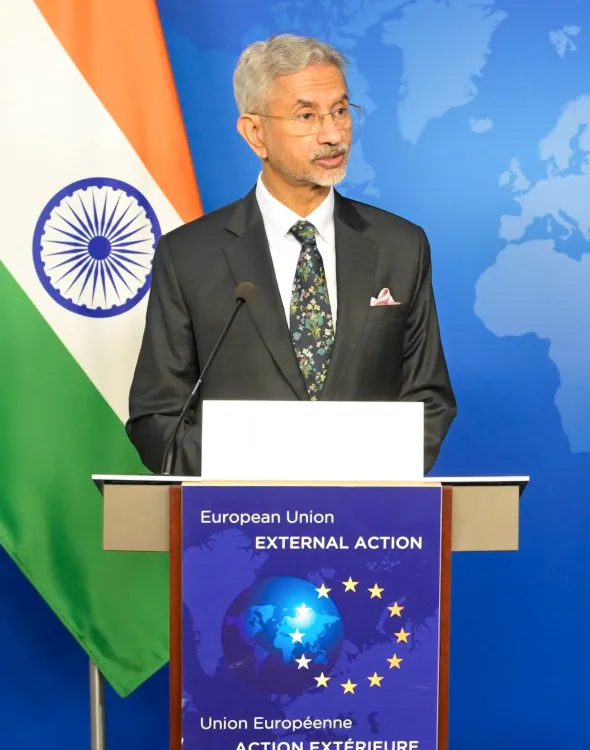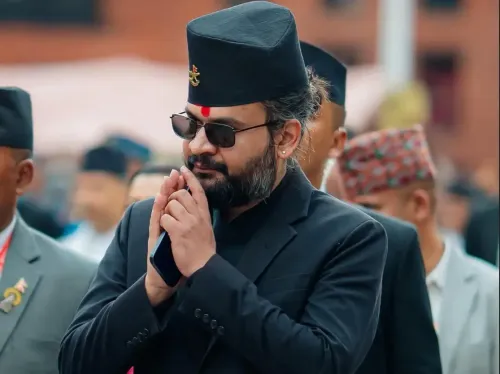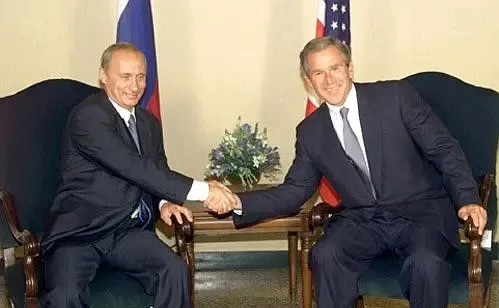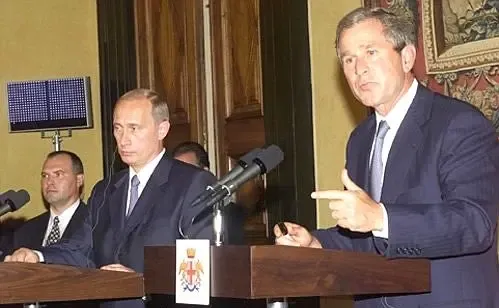Will the Same Terrorism Resurface? EAM Jaishankar's Warning to the West About Pakistan's Terror Havens

Synopsis
Key Takeaways
- India-Pakistan tensions are a global concern.
- Terrorism from Pakistan threatens world security.
- Importance of strategic autonomy in global relations.
- Historical context shapes current international dynamics.
- India's role in a multipolar world is pivotal.
Brussels, June 11 (NationPress) The global community must recognize that the strife between India and Pakistan transcends a mere bilateral dispute and is fundamentally a worldwide issue concerning terrorism, as emphasized by External Affairs Minister (EAM) S. Jaishankar during his current trip to Europe.
"Allow me to remind you of an individual named Osama bin Laden. Why did he, of all individuals, feel secure residing for years in a Pakistani military town, adjacent to their version of West Point? I urge the world to grasp that this is not simply an India-Pakistan matter. It is fundamentally about terrorism. And that very terrorism will ultimately return to haunt you," EAM Jaishankar stated in an interview with the European media outlet Euractiv in Brussels.
He cautioned that the terrorism currently targeting India will eventually threaten the wider world.
In response to inquiries regarding India's stance on sanctions against Russia and perceived insufficient support for Ukraine, Jaishankar remarked that India does not subscribe to the notion that conflicts can be resolved through warfare.
"We do not believe that disputes can be settled via war -- we do not believe that a resolution will emerge from the battlefield. It is not for us to dictate what that resolution should entail. My point is, we are neither prescriptive nor judgmental -- yet we are also not disengaged," he elaborated.
"We maintain a robust relationship with Ukraine as well -- it is not solely about Russia. However, every nation naturally takes into account its own experiences, history, and interests. India has the most enduring grievance -- our borders were violated merely months after independence, when Pakistan dispatched invaders to Kashmir. And the countries that were the most supportive of that? Western nations," the EAM remarked.
"If those same nations -- who were evasive or reluctant at that time -- now advocate for 'a significant dialogue on international principles', I believe I am justified in urging them to reflect on their own history," Jaishankar further asserted.
Emphasizing how India perceives its role in the emerging global order, EAM asserted that Europe has entered a phase of multipolarity and now faces the necessity to make more decisions in its own interest, utilizing its own capabilities and based on the relationships it cultivates globally.
"I have heard phrases like 'strategic autonomy' being utilized in Europe -- these were once integral to our lexicon. The EU is undoubtedly a significant pole in the global order -- and is increasingly becoming an autonomous one. That is precisely why I am here: to strengthen our relationship in this multipolar world," EAM Jaishankar concluded.










